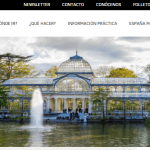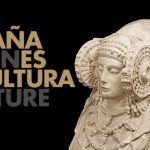The minister for Industry, Trade and Tourism, Reyes Maroto, today unveiled DATAESTUR, www.dataestur.es, a unique website of national tourism data where figures relating to different sources of information can be accessed.
Maroto, who was accompanied by the Chairman of SEGITTUR, Enrique Martínez, highlighted the importance of having all the data together in one single website, as this will help to provide a sole reference point where information on Spain’s tourism sector can be consulted.
“Public bodies will implement better tourism policies if they can make use of the suitable data,” said Maroto, emphasising the three benefits resulting from this initiative: “Generating better public knowledge of the most important areas of tourism, identifying the public and private sources that can be of use to learn about the sector or make decisions regarding the same, and designing a system to produce and access data linked to the management of destinations’ public problems.”
The website is starting off with public data on tourism, from traditional sources like the National Statistics Institute (INE), the Bank of Spain, Aena, Ports of the State and Turespaña, among others, which will be updated as soon as they are updated by the official source.
Structure of the data
The data will be divided into five categories: general data (the arrival of international tourists), economy (tourist expenditure, contribution to GDP, employment), transport (air passengers, passengers arriving via ports, trains and road), accommodation (hotel occupancy, accommodation prices) and knowledge (active listening, the System of Scientific Research into Internet Tourism and scientific tourism journals).
Private data is also included in addition to public data, in this case from the telephone operator Telefónica.
This initiative is part of a more ambitious project in which data analysis constitutes the basis for improving knowledge about tourists, while contributing towards making Spain a more competitive tourist destination.
Within the context of the data, a knowledge area has been created where active listening reports will be published with information on what is being said on social media about Spain as a tourist destination, as well as tourists’ interests when travelling to Spain. This information will be hugely useful for making the management bodies of destinations more familiar with tourists’ online behaviour during different parts of their trips.
“The power of data: the key to knowledge”
Before the DATAESTUR presentation came the roundtable entitled “The power of data: the key to knowledge”. Participating were the Secretary of State for Tourism, Fernando Valdés; the President of the INE, Juan Manuel Rodríguez; the Head of Industry Affairs Europe at Amadeus, Juan Jesús García; and data expert journalist for El País, Kiko Llaneras. It was moderated by Eduardo Parra, professor of Digital Economy and Tourism at La Laguna University.
The Secretary of State for Tourism highlighted that data management is going to become fundamental, allowing Spain to become more competitive with regard to other destinations. For this reason, the plan to modernise the tourism sector, which is to be financed with European funds, will make a significant investment in the digitalisation of new companies and tourist destinations of some €355 million. Valdés referred to the “unique opportunity” provided by data to the economy to create new jobs across the country and for current workers to develop their digital skills.
The President of the INE explained that they are working on new statistics for tourism, which are adapted to modern times, incorporating mobile data, bank cards and web scraping. Rodríguez noted the importance of being able to rely on the most granular, frequently updated data.
To Juan Jesús García, “Isolated data is of no value. To turn it into intelligence, it needs to be analysed to then help in decision making.” Journalist Kiko Llaneras emphasised the importance of data granularity, “As this gives more power to analysis and makes it more interesting for citizens.”





